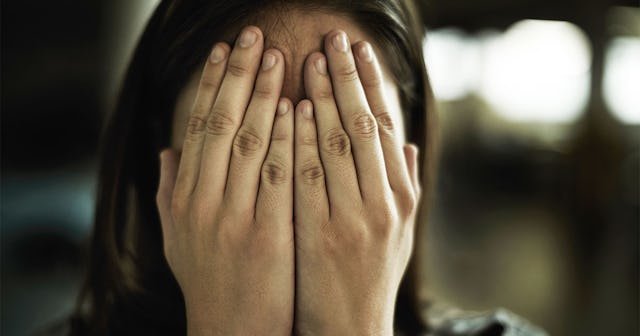People Who Are Silent About Abuse Have To Be Held Accountable Too

Mind your own. Keep your opinion to yourself. Stay in your own lane. Keep your nose out of others’ business. These are just a few lessons children are taught growing up. My parents often told me not to be a tattle-tale or a snitch. And while there is something to be said for this advice — some people are, by nature, busybodies; they gossip and lie; they tell stories that hurt and harm — taking it at face value is tricky. It is precarious, and it is problematic (through and through) because we shouldn’t always be silent. We shouldn’t always “zip our lips” or “turn the other cheek,” and sometimes it’s imperative we stand up and speak up. Sometimes it’s imperative we speak out.
Case in point: People need to be vocal when they see wrongdoing. People need to be vocal if and when they see someone being physically, verbally, or emotionally abused.
Full.
Fucking.
Stop.
Now I know how complicated this may be. I know speaking up can be scary and unnerving. Hell, I’m terrified of confrontation. It makes me anxious and uncomfortable. Raised voices put me on edge. I know there may be familial dynamics at play. Sometimes the abuser is our wife, our husband, our partner, our mother, our father, our friend, our colleague, our sibling, or a beloved peer. And fear can be a powerful force. Fear can keep us stuck — especially fear of change, because when you stand up to an abuser something has to change. But the victims of abuse deserve our time. They deserve our love, and they deserve our support.
They need our support.
Plus, when someone fails to speak up against abuse, they become complicit in the abuse. They (consciously or unconsciously) justify the behavior, acknowledging it is okay. When someone fails to speak up for and about abuse, they become an accessory. A willing (or unwilling) participant in hate and wrongdoing. They imply what is happening is normal. It is a-okay, and this further traumatizes the individual being abused. They feel unworthy and that no one cares.
How do I know? Because I was the victim of abuse. I’ve been verbally and emotionally assaulted. I’ve been battered, beaten, struck, slapped, pushed, and kicked. And no one stood up for me. Neighbors. Teachers. Family members. Everyone sat on the sidelines, watching it happen, and this made me feel unimportant. I felt unsafe, uncared for, worthless, and small.
But that’s not all. When people stay silent about abuse, the cycle is allowed to continue. The abuser feels untouchable; invincible. They are able to lurk in the shadows and out in the open, gaining power and control. When people stay silent about abuse, they validate the actions of the abuser — or, in some cases, defend it. They make excuses, often in the form of platitudes. “There are two sides to every story,” they say. “Let’s not jump to conclusions. Give them the benefit of the doubt.” And when people stay silent about abuse — particularly child abuse — they endanger another’s life. Children cannot get up and walk away. They are helpless. Powerless. Unable to defend themselves.
What’s more, abuse thrives in silence. Sometimes all it takes is one brave soul to stand up and say, “this is wrong,” to turn the tide. One person willing to stand up and speak out and say, “No. This is not okay.”
Make no mistake: Standing up to abuse is hard. It takes internal fortitude and strength and, yes, guts. It also takes a firm understanding of how abuse works, because no: Speaking up won’t make things worse. That is a myth. Things are already bad. But the more you protect the abuser — the more you cover up their behavior or excuse it — the more it intensifies. Things, I assure you, will get worse. So stand up. Speak up, and speak out. Your actions may change the course of someone’s life. Scratch that: Your actions may save their life.
If you or someone you know is in immediate danger, call 911. If you aren’t in immediate danger and have an opportunity to reach out, do. Confide in a trusted friend, family member, teacher, therapist, and/or volunteer with an abuse shelter. Call a domestic violence hotline and/or call the Child Help hotline for immediate assistance at 1-800-4-A-CHILD.